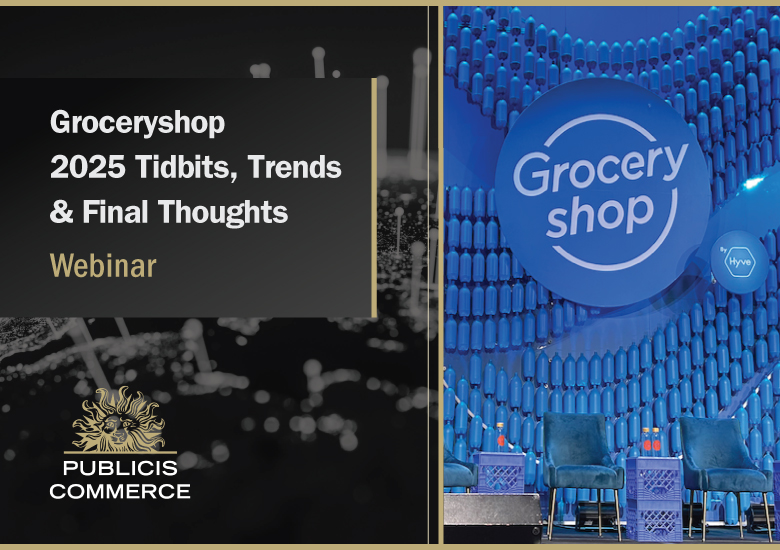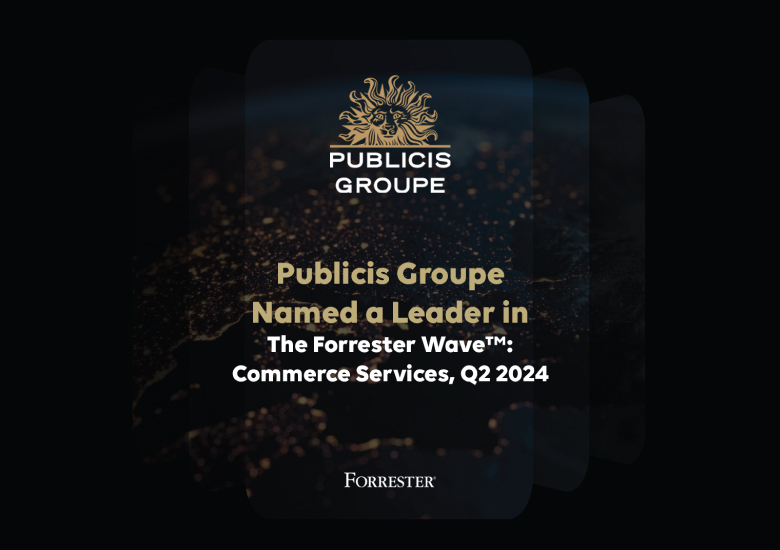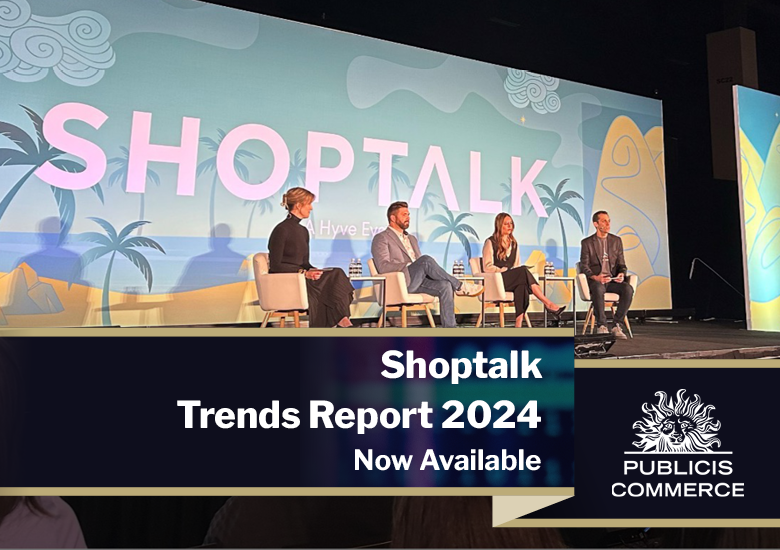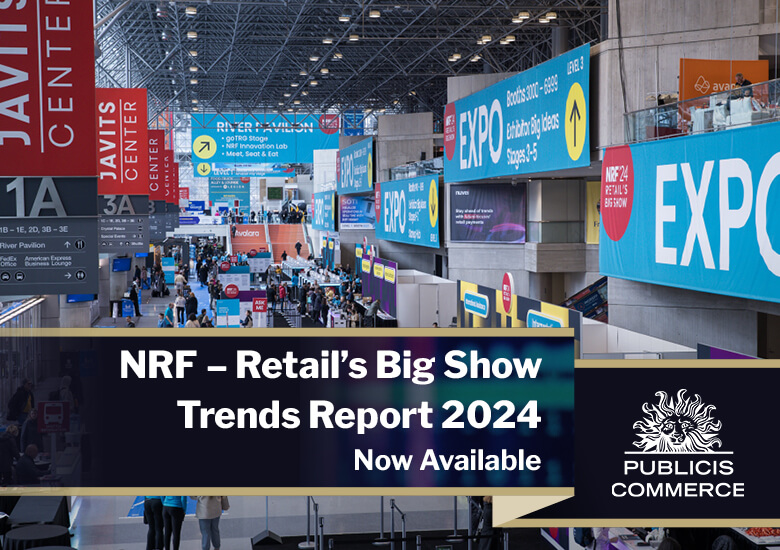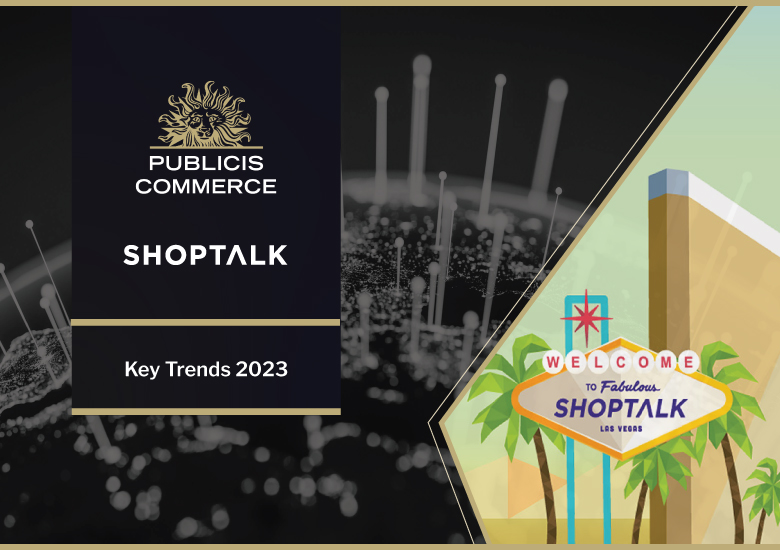For over 50 years, the world has eagerly awaited the yearly arrival of CES to explore the most groundbreaking products and promises for the future. When it comes to technology, integration into the culture is key to acceptance and the connection of the products to the people it will serve will be what drives commerce.
Our Commerce experts hit the showroom floor, met with partners, clients, attended keynotes and with the help of our friends at Digitas – pulled together some key themes from the most influential event in technology. Below we dive into the best of CES as it relates to the Metaverse, accessibility, sustainability and automotive.
The Metaverse
One of the most anticipated categories at CES 2023, the Metaverse did not disappoint. Deeper immersion in the Metaverse first surfaced at last year’s show and this year’s additions prove the trend is here to stay. Looking beyond the overpriced headsets and legless avatars, this year’s show exemplified more practical use cases of the virtual worlds, from awakening our senses to making hybrid work more seamless. Even still, mass adoption will remain out of reach in today’s current over saturation of pricey wearables. It’s time to challenge brands to design the digital world in unique, useful ways to make the Metaverse a more worthy canvas for consumers to explore. Highlights in the Metaverse category include:
Magic Leap with NavVis deploys large-scale AI to overlay digital twin imaging for enterprises used in training, warehouse operations and retail spaces. Hitting the real world in a big way, the FDA recently cleared the technology for use during surgery, allowing physicians to focus on patients while also viewing medical imaging directly over a patient.
Haptx brings touch to the Metaverse, using buzzing sensations and force-feedback that make virtual objects feel solid. The company first marketed its gloves for gaming, but this year has pivoted to an enterprise level, modeling its use for training simulations for remote employees.
Dell imagines a future beyond Zoom with its Concept NYX. A 3D desktop generates avatars to help represent users in a virtual meeting space and uses predictive eye tracking, all without the use of a headset. Group meetings are simultaneously held in person, in VR and over a desktop screen. Concept NYX also boasts a separate VR headset that connects wearers with a virtual whiteboard and is shared instantaneously with people working in the physical office. The tool is tailored to collaboration, as in-person colleagues can also send notes on the virtual whiteboard using a tablet.
OVR Technology brings smell to the Metaverse with its VR headset attachment that contains cartridges that release aromas that can be combined into thousands of personalized scents. Smell is directly connected to the creation of memories and emotion, making for a truly immersive experience users won’t forget.
AI Silk’s haptic gloves feature built-in finger sensors and control buttons on the back of a user’s hands, providing tactical feedback when touching virtual objects. The gloves are far more lightweight and comfortable than traditional handheld controllers and have potential applications from fitness to gaming.
Accessibility for All
2023 was an exciting year for accessible tech and disability-inclusive product design. From Beauty to Gaming to Content Translation, this year’s products are helping persons with disabilities live more autonomously.
When it comes to truly showcasing the new thinking and product development needed in the beauty space, L’Oreal was the clear winner when it comes to cultural inclusion and tech innovation at CES. They released two new CES 2023 innovation award-winning products:
HAPTA – The world’s first handheld computerized makeup applicator designed for users with limited hand and arm mobility. Leveraging technology originally created by Verily to stabilize and level utensils to give users the ability to eat with confidence and independence, HAPTA will give users the ability to apply lipstick and, in the future, other beauty products, without assistance.
L’Oreal Magic Brow – Through a partnership with Korean owned, temporary tattoo solution company, Prinker Korea Inc., L’Oreal created Magic Brow. Magic Brow is the first handheld, lightweight, electronic brow make-up applicator to provide consumers with a luxury brow experience via AR technology and at an accessible price point.
From adding accessibility menus and features to assisting with aspects of game play, gaming companies of all sizes have been reducing barriers to play for every gamer. But CES’s announcement from PlayStation outshined all of the others.
In partnership with organizations like AbleGamers, SpecialEffect and Stack Up, PlayStation designed a highly configurable controller to address common challenges faced by many players with limited motor control, including difficulty holding a controller for long periods, accurately pressing small clusters of buttons or triggers, or positioning thumbs and fingers optimally on a standard controller. Project Leonardo includes a robust kit of swappable components, so players can craft a remote configuration that works for their strength, range of motion and particular physical needs.
Sustainability
Green Tech and Sustainability were bigger than ever at CES 2023. Efforts toward developing a greener world took many shapes, from new electric and solar vehicles to advanced farming tech, from new ways to generate power to enterprise decarbonization and ways to use technology to conserve and preserve existing resources.
One company that stood out in this space was Ambient Photonics. As many as 3 billion single-use batteries are thrown into landfills each year. Not only is that a lot of trash, but batteries contain harmful chemicals. Ambient Photonics is trying to ditch single- use batteries altogether with its photovoltaic cells that can capture solar power in low-light situations (think interior rooms of a house, stores in malls, etc.) and use it to power low- drain devices like remote controls and digital signage. While the company only demonstrated a proof of concept at CES 2023, robust commercialization of this technology could cut waste and reduce energy consumption.
Food and farm tech were hot at CES 2023, especially as the threat climate change poses to our food supply comes into sharper focus. These small companies could have a big impact:
ManitSpectra SpectraPod: A scanner that determine the ripeness of food while it’s growing. With data, farmers can optimize harvest time and food yield, and maximize shelf life.
OneThird: A scanner that can predict shelf life to within 24-hour accuracy. As much as one-third of all food is wasted. This tool can help prevent that.
Lypid PhytoFat: A plant-based fat to improve taste and mouthfeel of plant- based meats. Cutting meat consumption will slow climate change. This can help improve taste and drive the move away from meat.
Automotive
With the shift from gasoline to gigawatts in full swing, EVs themselves are no longer a breaking news story; however, everything we’ve seen this year at CES has shown us that the industry still has big plans for this new era. While electric trucks have emerged as the hottest form factor, we’re still seeing plenty of innovation and exploration away from the driving experience itself.
Ram – Ram has announced their entry into the electric truck market with their Ram 1500 Revolution concept. Featuring an expanded cabin, split- tailgate extendable bed, rear-hinged rear doors and the wildest third row seating concept you’ll ever see. Trucks are the hottest segment in EVs right now, with entrants from Ford, Chevy, Rivian, GMC and Tesla either planned or in production. As we move toward mass adoption, converting the booming truck market will be key to automakers long-term plans.
Afeela – The first output from a couple of industry giants working together, the Afeela is a brand new entrant in the EV space. Combining Honda’s automotive skill set with Sony’s electronics expertise, the Afeela presents as a clean-lined, all-wheel-drive sedan with an infotainment system that combines screens and physical controls in an intuitive way. With a production model (with a few tweaks) slated for delivery in early 2026, Afeela will be bringing their brand of connected mobility to a road near you in the near future.
BMW – The first thing that everyone will notice about the BMW Vision Dee is that it can change exterior colors. Covered in 240 e-ink panels that can change to any of 32 colors, the Dee’s big trick is a showstopper. Inside the car, BMW is employing Mixed Reality technology, an update on a traditional HUD designed to minimize driver distraction while keeping you updated and connected to our digital world.
The future of car UI was also on full display at CES. As the driving experience of electric vehicles homogenizes, automakers are looking for ways to differentiate their products. As the car becomes so tech enabled and will act as the new living room, brands have the opportunity to develop immersive experiences that are customized to meet where consumers are going and coming.
Download The Best of Commerce at CES PDF here.
Check out more Publicis coverage of CES:
Spilling the LoyalTEA Podcast – Live from CES; Product and Product’s Promise
Don’t Bet Against Technology, Ray Lansigan, EVP, Corporate Strategy, Publicis Digital Experience
Brad Blackmon of Publicis Commerce talks CRM and Loyalty on the Digitas CES Morning Show

















